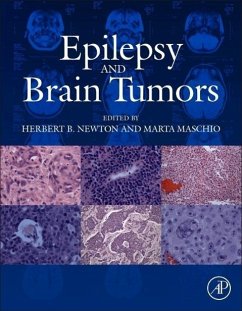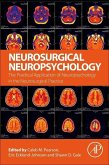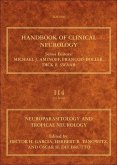Patients with brain tumor-related epilepsy (BTRE) suffer from two serious pathologies simultaneously - a brain tumor and a secondary form of epilepsy. Although there has been remarkable progress in BTRE research in recent years, it remains an on-going challenge for clinicians and continues to stimulate much debate in the scientific community. This volume is the first to be completely dedicated to BTRE, and in doing so it explores issues faced by the health care team as well as some of the novel and promising directions that future research may take. Epilepsy and Brain Tumors is not only a complete reference on BTRE but also a practical guide based on clinical experiences, with a comprehensive collection of presentations from international experts who share some of the latest discoveries and their approaches to tackling a wide range of difficult and complex issues.
"This is an outstanding current review of epilepsy related to brain tumors. The approach is inspiring as it addresses both medical and surgical audiences. Score: 85 - 3 Stars" --Doody's
"In the last two decades, neuroscience research has made a big leap forward. The emergence of sophisticated genetic and molecular tools, combined with imaging techniques of unprecedented spatial and temporal resolution, and their application to in vivo models of major brain diseases allowed spectacular progress in our understanding of the structure and function of the brain in health and disease.
Furthering our knowledge of the nervous system generates both opportunities and responsibilities for the neuroscience community: opportunities to shed more light on the pathogenic mechanisms of neurological and psychiatric diseases, and responsibilities to use this knowledge for new therapeutic strategies that will benefit patients and society at large. There is no way to escape from the fact that brain disorders are a major public health problem in Europe and the rest of the world. Data collected by the World Health Organisation in 2004 show that brain diseases are responsible for 35% of Europe's total disease burden. Currently, the major disorders of central nervous system affect one in three people in the developed world, and brain diseases are among the most prevalent and debilitating diseases. Because most of these disorders are chronic, the individual's quality of life and socio-economic prospect are dramatically impaired. In addition, an analysis of the health economic studies of brain diseases in Europe, published by EBC in 2011 led to an estimate of ?798 billion for the total cost of brain disease in Europe in 2010. What is needed to face, what is becoming a societal emergency, is to strengthen research and develop a strong European platform for both basic and clinical brain research. Epilepsy is listed among the most costly brain diseases for the European society, accounting for a annual cost of 13.8 billion euros. Epilepsy caused by tumors needs a particular attention since it merges two major disabilitating diseases, thus representing a major clinical, economical, societal and ethical challenge. Addressing the large costs for the European society for this particular disease, requires intensified inter-disciplinar and multisectoral research and the creation of novel solutions. Volumes like Epilepsy and Brain Tumors will fill a gap in the scientific literature and give the much needed visibility to this challenging pathology." --Prof. Monica DiLuca, FENS President, University of Milan
"In the last two decades, neuroscience research has made a big leap forward. The emergence of sophisticated genetic and molecular tools, combined with imaging techniques of unprecedented spatial and temporal resolution, and their application to in vivo models of major brain diseases allowed spectacular progress in our understanding of the structure and function of the brain in health and disease.
Furthering our knowledge of the nervous system generates both opportunities and responsibilities for the neuroscience community: opportunities to shed more light on the pathogenic mechanisms of neurological and psychiatric diseases, and responsibilities to use this knowledge for new therapeutic strategies that will benefit patients and society at large. There is no way to escape from the fact that brain disorders are a major public health problem in Europe and the rest of the world. Data collected by the World Health Organisation in 2004 show that brain diseases are responsible for 35% of Europe's total disease burden. Currently, the major disorders of central nervous system affect one in three people in the developed world, and brain diseases are among the most prevalent and debilitating diseases. Because most of these disorders are chronic, the individual's quality of life and socio-economic prospect are dramatically impaired. In addition, an analysis of the health economic studies of brain diseases in Europe, published by EBC in 2011 led to an estimate of ?798 billion for the total cost of brain disease in Europe in 2010. What is needed to face, what is becoming a societal emergency, is to strengthen research and develop a strong European platform for both basic and clinical brain research. Epilepsy is listed among the most costly brain diseases for the European society, accounting for a annual cost of 13.8 billion euros. Epilepsy caused by tumors needs a particular attention since it merges two major disabilitating diseases, thus representing a major clinical, economical, societal and ethical challenge. Addressing the large costs for the European society for this particular disease, requires intensified inter-disciplinar and multisectoral research and the creation of novel solutions. Volumes like Epilepsy and Brain Tumors will fill a gap in the scientific literature and give the much needed visibility to this challenging pathology." --Prof. Monica DiLuca, FENS President, University of Milan








